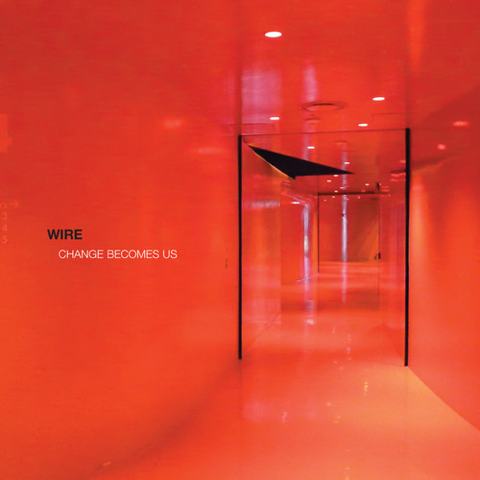For their next trick, Wire attempt time travel – either that or they’re looking to pip Kevin Shields and co to the record for the slowest realisation of an album, with a near 35-year gap between initial violent creation and the finished product on this, the band’s 12th release.
Taken from unfinished sketches that were kicked about on the circuit in 1979-80, Wire aficionados will recognise many of these from the 1981 live album Document And Eyewitness. But more than a remake, it’s an exercise in artistic frugality as a means of renewal. As Wire explained to The Quietus, the type of "creative recycling" employed here has long been a method they’ve used to make something new. As bassist Graham Lewis puts it, "It started off as a project that was a good idea, and then suddenly we realised we had a new album. It feels so natural to us, but it’s not a common thing."
Though it’s an often-thrilling evocation of post-punk era experimentation, Document… is commonly read as the suicide note of Wire MK 1 – the scabby, unfocussed farewell of the group’s original punk-to-post-punk incarnation. Here, ‘Eels Sang’ is a more realised and together version of the abrupt stop-start dadaist breakdown of ‘Eels Sang Lino’ that you can hear on Document. On the earlier version you can hear a possible influence of James Chance’s NY jazz-punk deconstructionists the Contortions, with Graham Lewis screaming over haphazard saxophone, and collapsible rhythms from Robert Grey. On Change Becomes Us, the groove is more sure, the vocals more silken. Similarly, opener ‘Doubles And Trebles’ was first released as ‘Ally In Exile’; ‘Keep Exhaling’ is an updated version of ‘Relationship’; ‘Stealth Of A Stork’ is a meatier ‘Witness to the Fact’.
Recycled the songs may be, but the band have souped ’em up, making Change Becomes Us the band’s most bombastic and polished record to date. There are one or two times – such as the Who-like beginning of ‘Adore Your Island’ – when it sounds like a stadium rock group has been smuggled onto the record. It is as if they have sought to nullify, accentuate – perhaps even send up – the poor quality of the earlier recordings via a wilful act of audio Botox. Voices are heavily treated with effects and multiple vocal tracks are smoothed together using pitch and time correction, and an array of embellishments.
Despite the songs’ far-off beginnings, Change Becomes Us is like an aggressive, steroid-pumped continuation of the band’s excellent 2011 album Red Barked Tree, a testament to the band’s consistent faithfulness to the key signatures of ice-sheet psychedelia and jackhammer punk. Here, Wire continues to prove that 4/4 doesn’t have to be straight; that intellectual obliqueness doesn’t have to be a smokescreen to hide a lack of emotional depth.
Lyrically, the kings of obfuscation seem keen on opening up a little. ‘Love Bends’ has been worked from the stomping yet unfinished ‘Piano Tuner’, evolving from punk by numbers into an ode to the power of, well, love – its total effect on people, the molecular chemical shifts that masquerade as truths. It is a perfect example of a Wire song as it is about perception. Like the title, Wire’s music bends – it swerves around as if mimicking the inherent unreliability of feeling. The slow-burning, penultimate track ‘& Much Besides’ has been quite faithfully derived from the more ragged Document track, ‘Eastern Standard’. The earlier version boasted typically absurd wordplay, but these days the odd focused message makes its way through the smudges. "While much remains unresolved/Change becomes us all in time," Colin Newman cries as the song closes. "The course is set".


